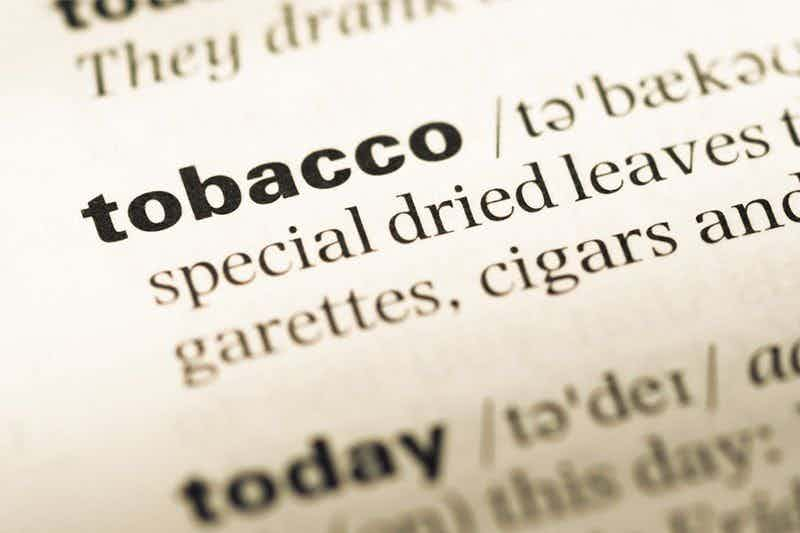A major academic journal will no longer allow authors to call vapes tobacco products. In an editorial titled “Are e-cigarettes tobacco products?” Nicotine & Tobacco Research editor-in-chief Marcus Munafò explains that the journal will only use the term “tobacco products” to describe items that contain actual leaf tobacco.
The change matters because Nicotine & Tobacco Research is the most important academic journal focused exclusively on topics related to tobacco and nicotine. Discarding the terminology used in the FDA definition of “tobacco products” may mark a turning point in the conversation about vaping among scientists in the field.
But does the change indicate a shift in thinking by the leadership of the organization that publishes the journal? The publication’s sponsor is the Society for Research on Nicotine and Tobacco (SRNT), a membership organization that has regularly engaged in anti-vaping political advocacy, especially under president Jodi Prochaska, a Stanford researcher who has never had any use for e-cigarettes.
SRNT is supposed to be dedicated to science, yet the organization has joined many times with purely political special interest lobbying groups to urge Congress to force independent vaping products to undergo an FDA review process that is far more expensive and difficult than what has been required of cigarette manufacturers. The organization has an anti-harm reduction bias that is bad for public health. There’s nothing scientific about that.
"Vapers have long wondered why researchers can’t simply use the names that we, the users and inventors, have given to the products. "
SRNT’s annual meetings are known to be virtual cheerleading events for the FDA’s and CDC’s anti-vaping policies and rhetoric. At the 2018 conference, Prochaska brought her children on stage to be used as props for a predictable anti-tobacco speech by Surgeon General Jerome Adams. FDA Commissioner Scott Gottlieb also spoke at the event.
In his editorial, Marcus Munafò explains that “describing e-cigarettes as tobacco products is a particularly US phenomenon.” Artificially defining all nicotine-containing products as tobacco is largely a product of the U.S. Tobacco Control Act, which states that any product containing nicotine derived from tobacco is a tobacco product. That’s why the FDA was able to “deem” e-cigarettes to be tobacco products.
But, he says, the rest of the world isn’t tied to the American definition — and there’s no reason a scientific journal should honor a U.S. legal/regulatory description of vaping products. Noting that nicotine replacement therapy (NRT) products like gum and patches are not classified as tobacco, Munafò says, ‘As a scientific journal, definitions matter, and a legal ruling in a single country is not a sound basis for determining whether a certain definition is valid.”
In a paragraph exploring the various scientific naming conventions for vapor products, Munafò correctly rejects ENDS (electronic nicotine delivery system) for being imprecise. Not all vapes are electronic, and not all e-liquid contains nicotine. Urging authors to use the specific names for various products (“cigarettes,” “e-cigarettes”), Prof. Munafò explains that “the terminology used should be clear, unambiguous, and scientifically appropriate.”
Vapers have long wondered why researchers can’t simply use the names that we — the users and inventors — have given to the products. Munafò, a psychologist at the University of Bristol (U.K.), has been involved in several vaping studies, and has always shown himself to be honest and not ideologically motivated. It’s refreshing to see him announce a change that will make it just a little harder to use science to advance the political opposition to e-cigarettes.

Jim McDonald
Vaping for: 13 years
Favorite products:
Favorite flavors: RY4-style tobaccos, fruits
Expertise in: Political and legal challenges, tobacco control haters, moral panics
Jim McDonald
Smokers created vaping for themselves without help from the tobacco industry or anti-tobacco crusaders, and I believe vapers and the vaping industry have the right to continue innovating to give everyone who wants to use nicotine access to safe and attractive non-combustible options. My goal is to provide clear, honest information about vaping and the challenges nicotine consumers face from lawmakers, regulators, and brokers of disinformation. You can find me on Twitter @whycherrywhy


